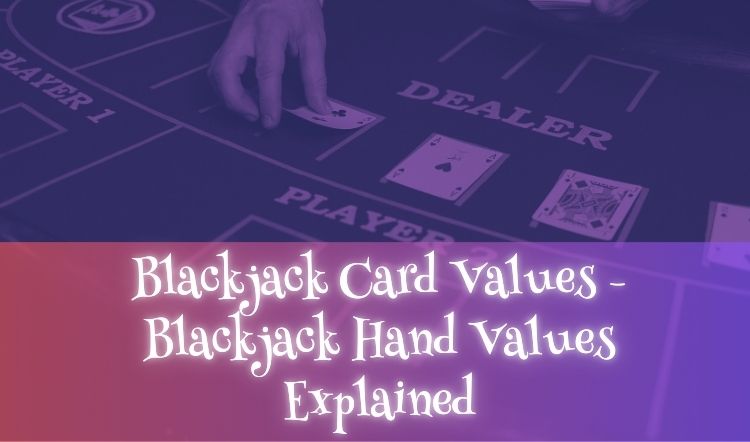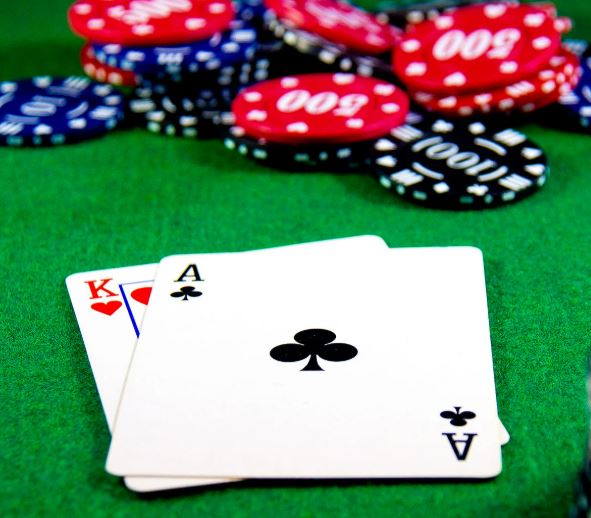
Blackjack is one of the most recognisable card games found in many casinos, both online and in person. It’s popular because the rules are relatively straightforward, but there are still details that can catch new players out. If you don’t yet understand how the cards are valued or how hands are worked out, the game may feel confusing.
This guide breaks down blackjack card values step by step, showing how your hand total is calculated and how the dealer’s cards come into play. It will also explain why understanding these basics matters if you want to make informed choices when it’s your turn to act.
Blackjack Card Values
Blackjack uses standard 52-card decks. Depending on the version you are playing, there may be anything from a single deck, to as many as eight shuffled together. For example, many live online blackjack tables in the UK use six or eight decks, while single-deck games tend to be less common. The number of decks does not change the value of the cards, but it does affect the house edge and how often certain hands may appear.
Cards are dealt differently depending on the style of blackjack. In most American-style games, players receive two face-up cards, while the dealer shows one face up and keeps one face down. In European-style blackjack, the dealer often waits until all players have acted before drawing a second card. Because rules can vary, it may be worth checking how the game is dealt before you start.
When it comes to card values:
-
Aces count as either 1 or 11, whichever might work best for the hand.
-
Face cards (King, Queen, Jack) are each worth 10.
-
Number cards (2 to 10) are worth the number shown on the card.
The suit of a card (hearts, clubs, diamonds, spades) makes no difference to its value in blackjack.
When Is Ace Considered 1 Or 11?
The Ace is the most flexible card in blackjack because it can be worth two different amounts. This is where the terms “soft” and “hard” hand come in. 
-
A soft hand includes an Ace valued as 11. For example, Ace + 7 = “soft 18”. You can still treat the Ace as 1 if another card is drawn that would otherwise push you over 21.
-
A hard hand is a total that counts the Ace as 1, or a hand without any Aces at all. For example, Ace + 7 + 10 = “hard 18”, because if the Ace counted as 11, the total would go over 21.
Here’s a simple example:
If you are dealt an Ace and a 6, you have “soft 17”. If you draw a 5, you can count the Ace as 1, making your total 12 instead of 22. This flexibility is what makes the Ace so valuable.
Basic Blackjack Strategy Explained
Blackjack involves both chance and decision-making. While you cannot influence which cards are dealt, you can decide whether to stand (keep your total), hit (take another card), double down (double your stake and take one more card), or split (if you are dealt two cards of the same value). Knowing when to make each choice is where basic strategy comes in.
A basic blackjack strategy chart is a guide that shows the mathematically best move in each possible situation, based on your hand total and the dealer’s visible card. The chart does not guarantee wins, but it may help you make consistent choices that have the potential to reduce the house edge.
For example:
-
If you have 16 and the dealer shows a 10, the chart will usually suggest hitting, because standing leaves you very likely to lose.
-
If you have 12 and the dealer shows a 6, the chart typically suggests standing, because the dealer has a higher chance of going bust.
It’s important to note that the best choice can depend on the exact rules of the game. If the dealer must stand on soft 17, the advice on the chart may differ from a game where the dealer hits on soft 17. That’s why it can help to understand which rule set is being used.
The below list on the dealer’s up card and chances of going bust below, could also help you decide how to act in certain situations. This list has all the possible up cards the dealer could have, alongside their chances of going bust, displayed as a percentage.
The dealer’s upcard matters because it gives you an idea of how strong or weak their position might be. For instance, a dealer showing a 5 is considered much weaker than a dealer showing a King.
Bust probabilities are not identical across every game, but under common multi-deck rules where the dealer stands on soft 17, the figures are usually around the following:
-
Dealer shows 2 → Bust chance about 35%
-
Dealer shows 3 → Bust chance about 37%
-
Dealer shows 4 → Bust chance about 40%
-
Dealer shows 5 → Bust chance about 42%
-
Dealer shows 6 → Bust chance about 42%
-
Dealer shows 7 → Bust chance about 26%
-
Dealer shows 8 → Bust chance about 24%
-
Dealer shows 9 → Bust chance about 23%
-
Dealer shows 10, Jack, Queen or King → Bust chance about 23%
-
Dealer shows Ace → Bust chance about 17%
These figures show why many players prefer to stand when the dealer has a 4, 5 or 6 visible — because those upcards give the dealer a relatively high chance of going bust when they play out their hand. On the other hand, when the dealer shows a 10 or Ace, they are in a stronger position, which makes it harder to win by standing on a medium total.
Blackjack may seem straightforward, but it remains a gambling game, so outcomes are random and nothing is guaranteed. A strategy can help guide your decisions, yet it does not remove the house edge.
If you choose to play, it can help to set a budget, view the game as entertainment rather than a way to make money, and take a break if it stops being enjoyable. Because the number of decks and rules can vary between casinos, it can be worth checking the paytable and table rules first, so you understand how that particular game is played. Always gamble responsibly.
*All values (Bet Levels, Maximum Wins etc.) mentioned in relation to these games are subject to change at any time. Game features mentioned may not be available in some jurisdictions.
**The information provided in this blog is intended for educational purposes and should not be construed as betting advice or a guarantee of success. Always gamble responsibly.
